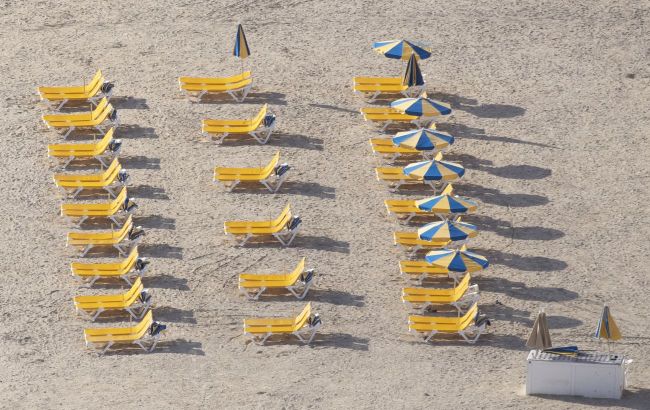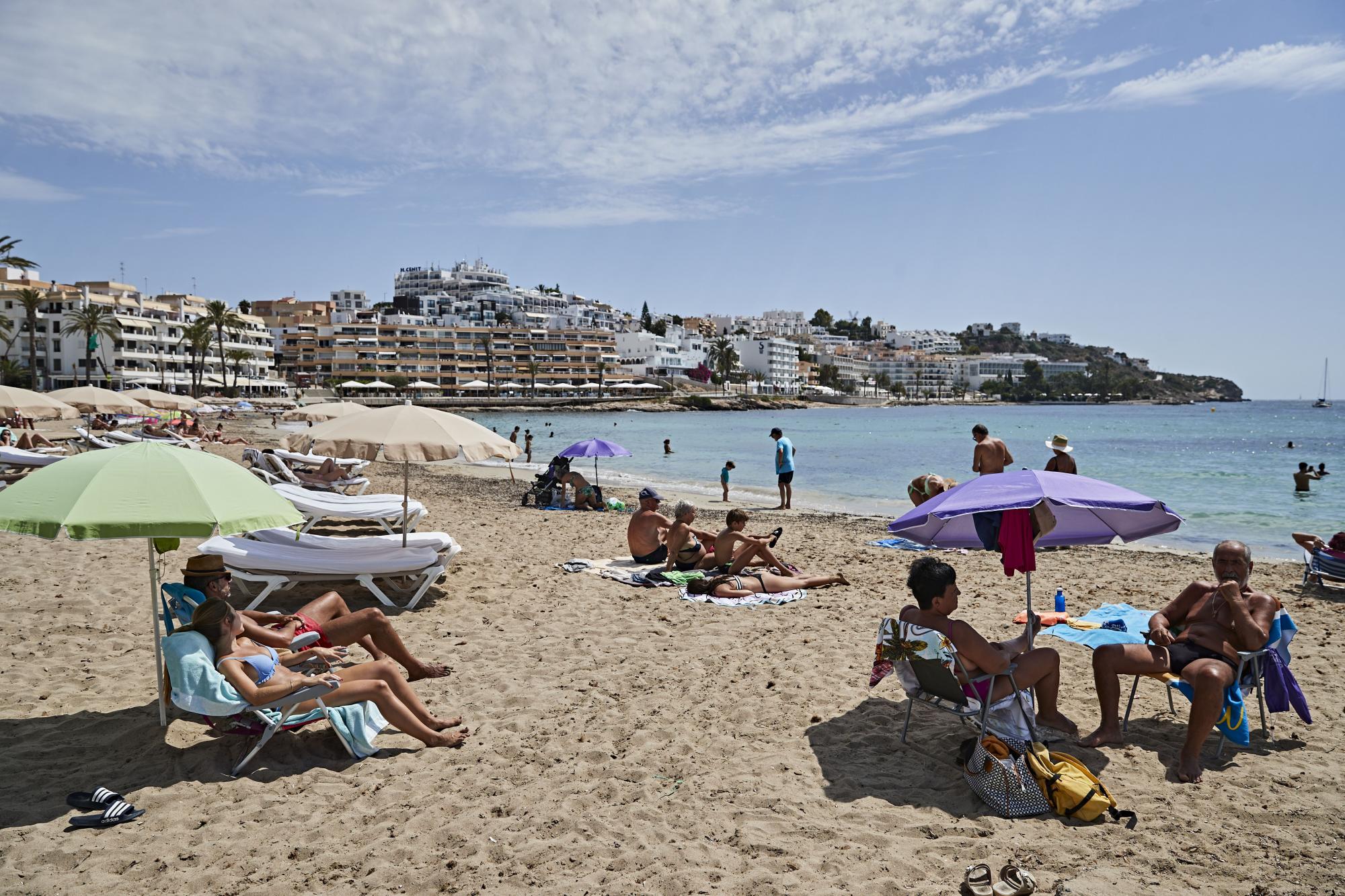Spain vacation 2025: Updated prices, tourist fines and must‑know rules
 Spain will become significantly more expensive for tourists (photo: Getty Images)
Spain will become significantly more expensive for tourists (photo: Getty Images)
Spain traditionally remains one of the most desired destinations for millions of tourists worldwide. In 2024 alone, the country welcomed a record 94 million visitors. However, the growing flow of travelers, especially in popular regions, has triggered increasing backlash from local residents. And complaints are no longer enough. Metro explains how Spain is responding to the influx of tourists and what new strict rules have been introduced for visitors.
How Spain is reacting to millions of tourists
Spaniards' dissatisfaction erupted into mass demonstrations across Southern Europe last Sunday. Thousands of people took to the streets of Barcelona, Palma de Mallorca, Lisbon, Venice, and Genoa.
In Barcelona, activists even sprayed tourists with water to express their anger at their city's transformation into an "amusement park."
In response to these challenges, Spanish authorities are introducing a series of new rules and restrictions for visitors.
If you’re planning a trip to Spain or the Canary Islands this summer, be sure to review these changes so your journey goes smoothly and without unpleasant surprises.
Important rules for tourists in Spain in 2025
Tourist tax in the Balearic Islands
Where: Mallorca, Menorca, Ibiza, Formentera
When: New measures are pending approval, the exact date is not specified
Cost: Tourist taxes per night may increase from the current 4 euros to 6 euros per person
The amount will depend on your accommodation category. Guests at four- and five-star hotels will pay the most, especially during peak months – June, July, and August.
This means a week in a luxury hotel could cost around 42 euros per person, which is 12 euros more than before.
Cruise passengers: The overnight fee for cruise passengers could rise by 200%, from 2 euros to 6 euros per person.
Exemptions: No tax applies for visits in January or February. Children under 16 are also exempt.
Tourist tax in Barcelona
Where: Barcelona
When: Until the end of 2025
Cost: The tourist tax is expected to double, reaching almost 15 euros per person per night, depending on accommodation quality
The maximum charge is 7.32 euros for five-star hotels and 5.55 euros for four-star hotels now.
Tourists staying in apartments pay slightly over 6 euros. Visitors in the broader Catalonia region will pay between 1.5 and almost 6 euros daily.
Exemptions: Children under 16 are exempt.
Limit on alcoholic drinks in all-inclusive packages
Where: Playa de Palma, San Arenal, and Magaluf (Mallorca), as well as West End, San Antonio (Ibiza)
What changed: The Balearic government introduced strict limits after a rise in antisocial behavior in 2024. All-inclusive packages now have a daily limit of six alcoholic drinks per person – three at lunch and three at dinner.
Note: This restriction applies only in regions heavily affected by rowdy behavior.
Additional bans: Pub crawls are banned on Magaluf's notorious promenade.
Restrictions on walking tours
Where: Mallorca, particularly Palma
What changed: Stricter limits have been introduced on walking tours. New rules cap groups at 20 people, likely making tours more expensive.
Enforcement: It remains unclear how group sizes will be monitored.
Exemptions: The rest of the Balearic Islands are unaffected, where walking tours can have up to 70 people.
Changes in cash acceptance
What changed: Spain is introducing changes to accepting cash banknotes, which may lead to rejection of certain bills.
From July 2025, Retailers may refuse crumpled or worn €50 banknotes. This is part of the central bank's plan to remove damaged notes from circulation to combat fraud.
Other denominations: €5, €10, and €20 banknotes will generally remain acceptable. However, €50 notes are more prone to damage and counterfeiting due to ATM theft-protection systems.
Banned beach items and behavior
Where: Gran Canaria
What's banned: In March, authorities published a new list of banned items and actions on Gran Canaria's beaches. Violations could result in fines up to 2,950 euros.
List of bans:
- Smoking or vaping
- Playing music in sunbathing areas (including beaches, promenades, and coastal zones)
- Cooking on the beach
- Using umbrellas for shade
- Setting up any type of tent or shelter
- Reserving spots on sun terraces or swimming platforms
- Collecting shells or rocks from the beach or water, or moving stones without returning them to their place
- Public sex
- Blocking access paths or walkways
- Misusing public showers or foot-washing stations (wasting water, filling containers, or using soap)
- Fishing with rods within 150 meters of swimming zones or near divers
Fines:
Minor violation: 30 to 749 euros
Serious violation: 743 to 1,484 euros
Very serious: up to 2,969 euros
Since the violation categories are not identified clearly, it's better not to take chances.
 What tourists will be banned from doing in Spain in 2025 (photo: Getty Images)
What tourists will be banned from doing in Spain in 2025 (photo: Getty Images)
Resident-only zone
Where: Sóller, Mallorca – "a typical old Mediterranean town"
What changed: Sóller city council has introduced a "residents only" zone in the city center and added rental cars to the blacklist.
Only registered residents with local vehicles can drive within a 70-hectare area covering 12 streets. Rental or non-registered vehicles are not allowed.
Goal: To encourage visitors to park in designated lots outside the city center.
Alcohol sales ban
Where: Llucmajor, Palma, Calvià (Magaluf) in Mallorca, and Sant Antoni in Ibiza
When: Introduced in 2024
What changed: Alcohol sales are banned late at night, from 9:30 p.m. to 8:00 a.m. the next day, and public consumption during these hours is also banned.
Boat parties: Party boats are prohibited from operating within one nautical mile of designated zones (according to a 2020 law).
Goal: These crackdowns aim to save popular tourist zones from unruly behavior caused by excessive drinking.
Clarification on the "three-year" rental ban
Where: Málaga (and possibly Alicante, Madrid, Seville)
When: From January 14, 2025
What it means: The new three-year rule in Málaga, mistakenly called a "ban on tourist entry," does not prevent tourists from entering. Instead, it blocks registration of any new vacation rental properties in 43 neighborhoods.
Goal: This measure, introduced by the Málaga city council and the Costa del Sol authorities, aims to halt the increase of short-term holiday rentals in overcrowded areas and give locals better access to long-term housing.
Important: You can still book hotels, Airbnbs, and other accommodations as usual. The restriction only affects the creation of new short-term rentals.
These new rules reflect a growing desire among Spanish communities to balance the benefits of tourism with the needs of local residents. Being aware of these details will help you plan your trip responsibly and enjoy sunny Spain without unpleasant surprises.
You may also be interested in:
- Which cities in Ukraine are best for living after 35
- Where the mystical Devil's Canyon in Ukraine is located and why it's worth visiting at least once

